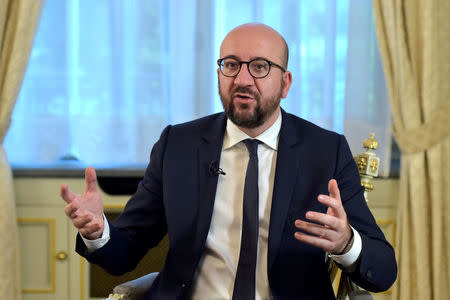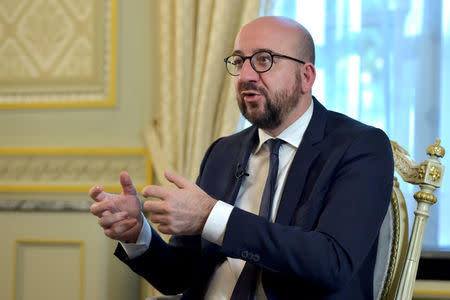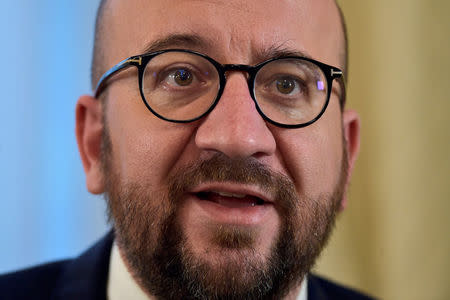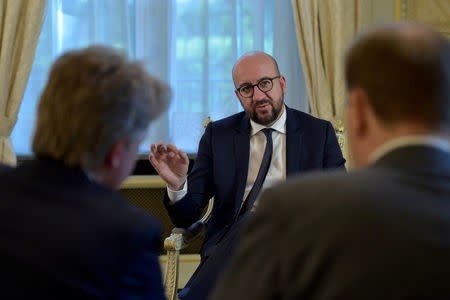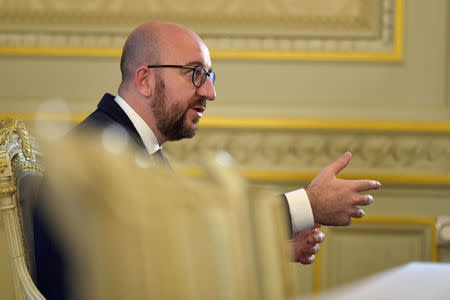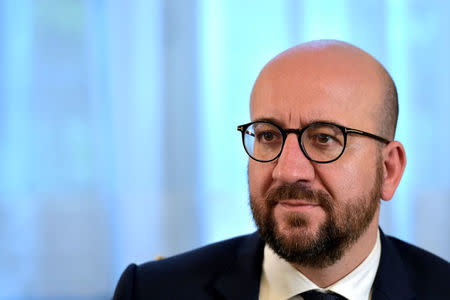Lessons learned, Belgian PM still on guard a year after attack
By Alastair Macdonald and Robert-Jan Bartunek BRUSSELS (Reuters) - Belgium has learned lessons about keeping violent Islamists in check but cannot rule out more attacks, its prime minister said on Tuesday, a year after Islamic State suicide bombers killed 32 people in Brussels. In an interview with Reuters on the eve of the anniversary of the March 22 bloodshed at the airport and on a metro train, Charles Michel said European states still needed to do more to coordinate surveillance of potential threats and that it was too early to say when Belgium would pull troops off the streets. He praised his country's security services, who were criticized by some abroad for failing to track the radicalized young Arab men from Brussels who attacked Paris and then their own city four months later. Islamic State had failed, he said, to provoke Belgians into a "trap" of inter-ethnic hatred. "Belgium is on a sounder footing in security terms than it was a year ago," Michel said, noting additional public funding for the security services and legislation to close loopholes in police powers to tap phones or raid suspects' homes overnight. "But even today I can't say there is zero risk. We know that whatever we do, when people are ready to kill themselves and blindly destroy as many lives as possible, we cannot have perfect security." Troops have patrolled the EU capital since the Paris attacks that killed 130 people in November, 2015, were blamed on young men, mostly of Moroccan origin, some of whom had fought in Syria. While neighbors France, Germany and Britain were helping push EU cooperation, he complained of delay: "We have to up the pace at European level to strengthen the systematic exchange of intelligence and information -- in a more pre-emptive manner." MILITARY PATROLS Michel said he could not say when Belgium might lower the level of threat: "Nobody can say today whether this will take three or six months. That's true for Belgium as it is for any other country." He defended Belgian security services from criticism they faced last year, notably in France, noting successes in foiling other plots. But he took a veiled dig at Socialist predecessors who critics say soft-pedaled curbs on radical Islamists. "Some politicians were probably too lax about the rise of an extremist, fundamentalist, radical ideology," said Michel, 41, who has led a center-right coalition since 2014. "That was a lesson for European democracy. For Michel, whose first public words after the morning rush hour bombings were "what we had feared, has come to pass", the response of Belgian society to the shock of a first major attack since World War Two showed it could resist divisions. Victims, he said, had impressed him by refusing to "sink into hatred". The country, he said, had avoided a "trap of mutual radicalization" in which Muslims and non-Muslims might have turned on each other. Along with tough security measures put in place, that meant he could assure visitors: "Belgium is a safe country." Visitor numbers to Brussels took a heavy hit last year but, the prime minister said: "We're in better shape today than a few weeks or months ago. We see tourists and business travelers coming back." (Writing by Alastair Macdonald; editing by Richard Lough)

